862 episodes
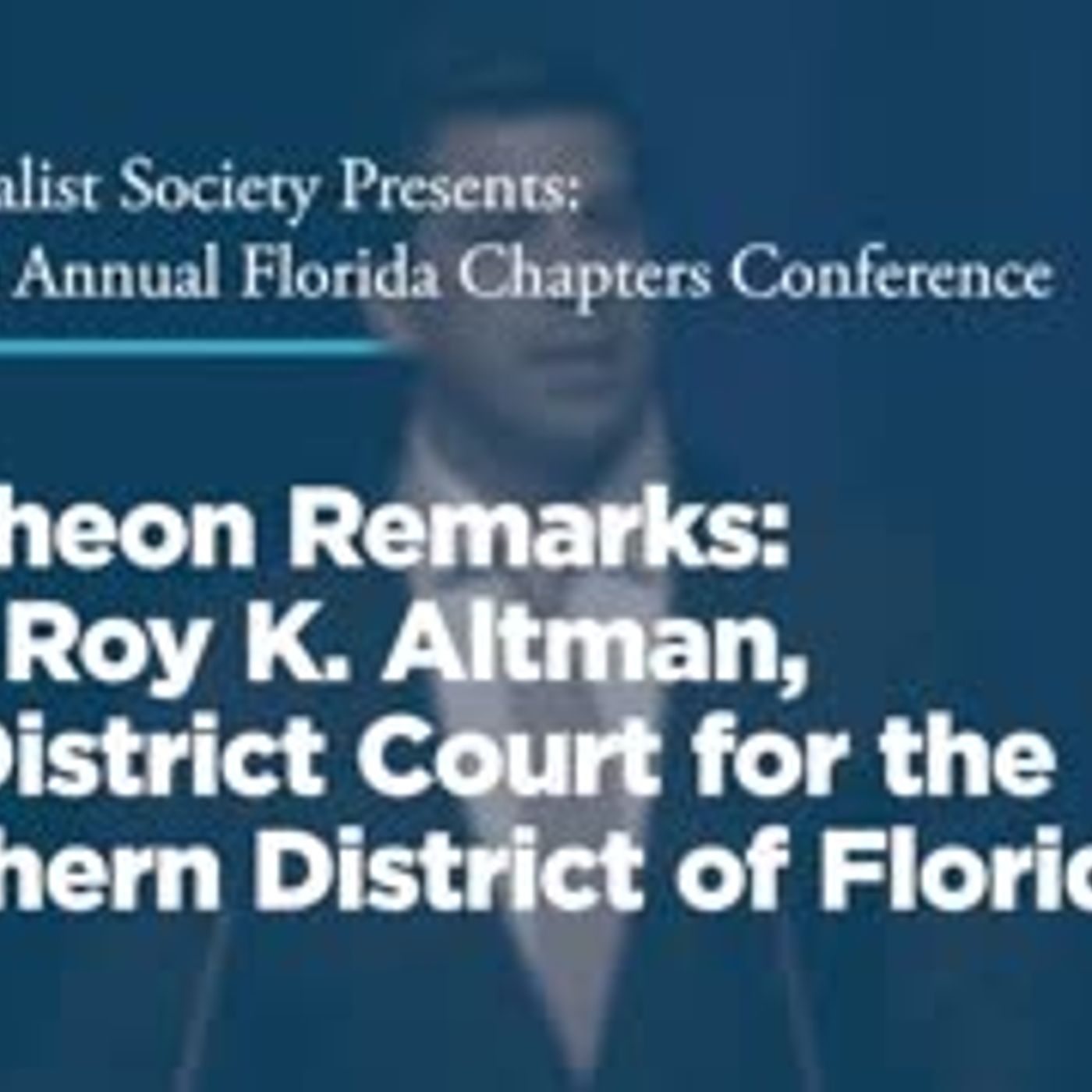

Zionism: An Indigenous People’s Fight for its Ancient Homeland Judge Altman led us on a journey from 1208 BC (when the Merneptah Stele, the first extra-biblical mention of the People of Israel, was composed) to Israel's current war with Hamas. Along the way, Judge Altman showed that Jews are indigenous to the land of Israel, that Jews have lived in (and often ruled) the land of Israel for thousands of years, and that the State of Israel is a legitimate sovereign over the lands it now governs. Judge Altman also addressed--and refuted--claims that Israel is an apartheid state, that Gaza was in any way occupied by Israel on October 7, and that Jews have obstructed the establishment of a Palestinian state. Finally, Judge Altman explained that Israel's military response to the horrific terror attacks of October 7 was (and remains) proportional under international law. Featuring: Hon. Roy K. Altman, U.S District Court for the Southern District of Florida
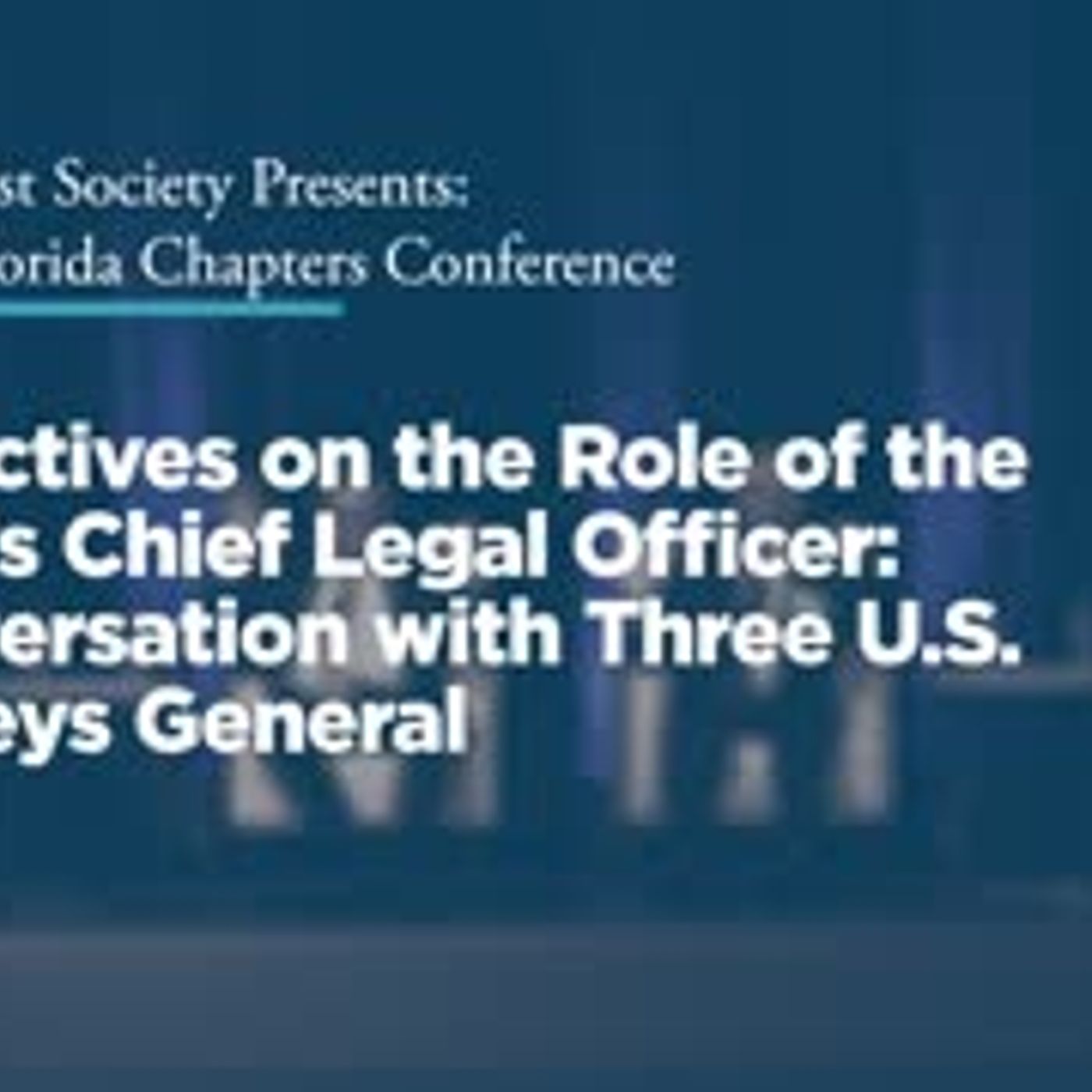

Perspectives on the Role of the Nation’s Chief Legal Officer A Conversation with Three U.S. Attorneys General Featuring: Hon. John Ashcroft, Former U.S Attorney General (2001-2005) Hon. William P. Barr, Former U.S Attorney General (1991-1993 and 2019-2020) Hon. Jeff Sessions, Former U.S Attorney General (2017-2018) Moderator: Beth Williams, Board Member, U.S. Privacy and Civil Liberties Oversight Board; former Assistant Attorney General for the Office of Legal Policy
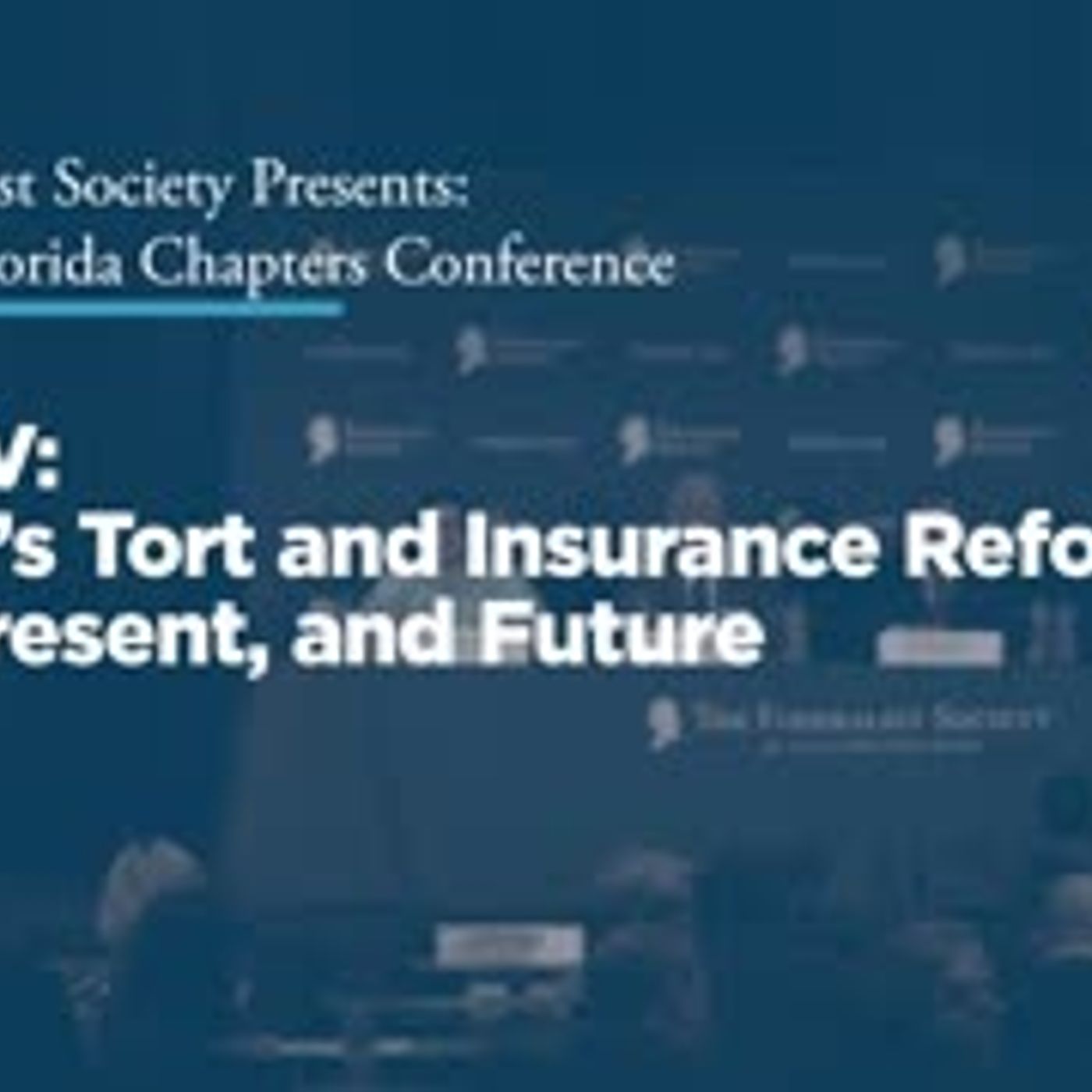

Lawmakers and courts have been reforming Florida’s tort and insurance laws for decades. From expansion of insurance bad faith and contraction of comparative fault in the 1990’s, to restrictions on medical malpractice suits in the 2000’s, to changes in tort and insurance litigation in the 2020’s, the legal landscape shifted dramatically. This panel will examine the latest reforms in the context of recent history, and it will debate where Florida policy should go from here. Featuring: Kansas R. Gooden, Shareholder & Practice Group Leader, Boyd & Jenerette, PA Fred Karlinsky, Shareholder and Global Co-chair, Greenberg Traurig William Large, President, Florida Justice Reform Institute Hon. Paul Renner, Speaker, Florida House of Representatives Prof. Jay Tidmarsh, Judge James J. Clynes, Jr. Professor of Law, University of Notre Dame Law School Moderator: Pat Kilbane, Partner, General Counsel & Wealth Advisor, Ullmann Wealth Partners, President of Jacksonville Lawyers Chapter
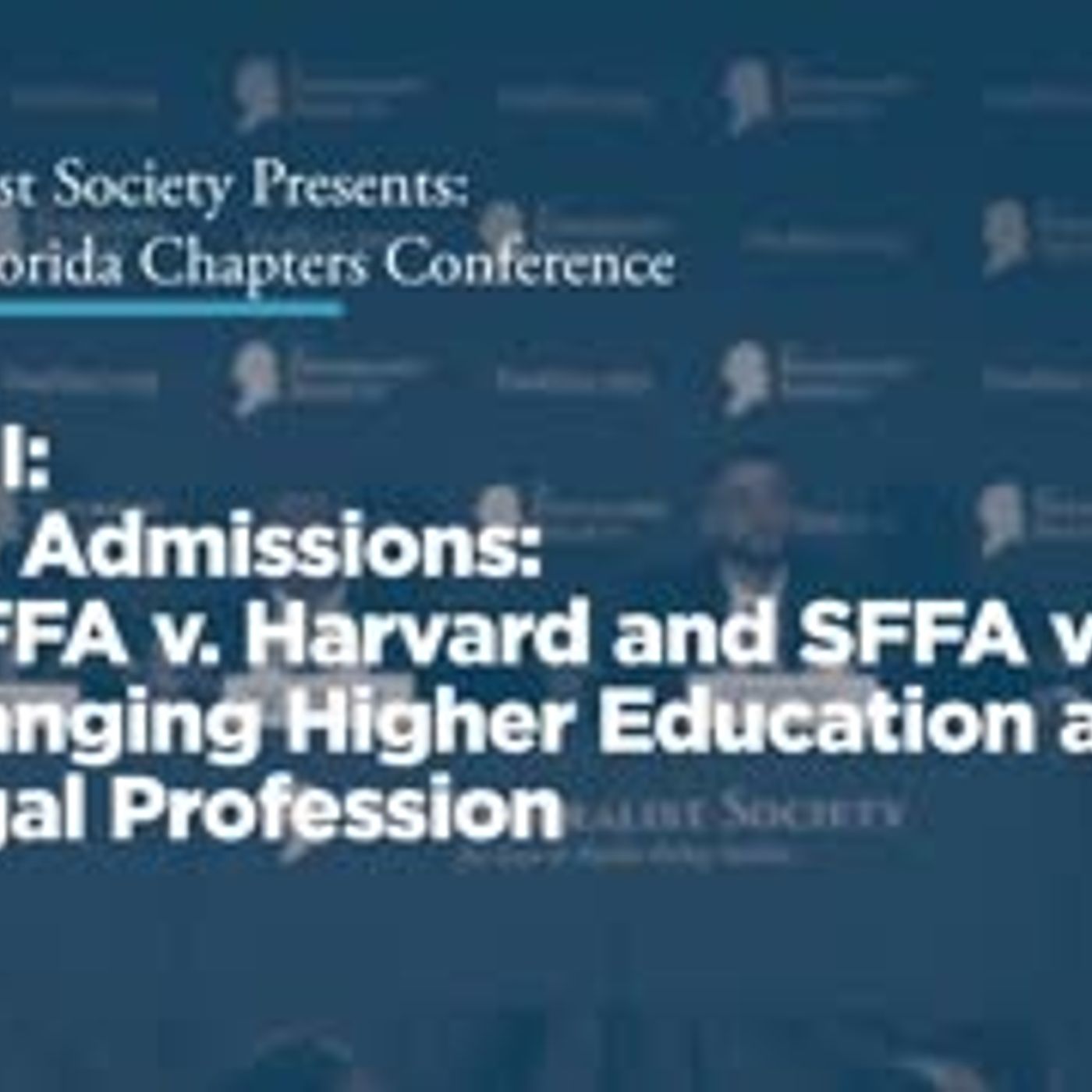

The panel will discuss how these decisions are transforming the admissions process in higher education and the impact on the legal profession. Included in the discussion will be the response from academia, the permissible limits of the use of race in admissions after these decisions, and what impact this is expected to have on corporate America and the legal profession. Featuring: Prof. Tracey Maclin, Raymond & Miriam Ehrlich Chair in US Constitutional Law , University of Florida Levin College of Law Cameron Norris, Partner, Consovoy McCarthy PLLC Devon Westhill, President and General Counsel, Center for Equal Opportunity Moderator: Hon. Meredith Sasso, Justice, Florida Supreme Court
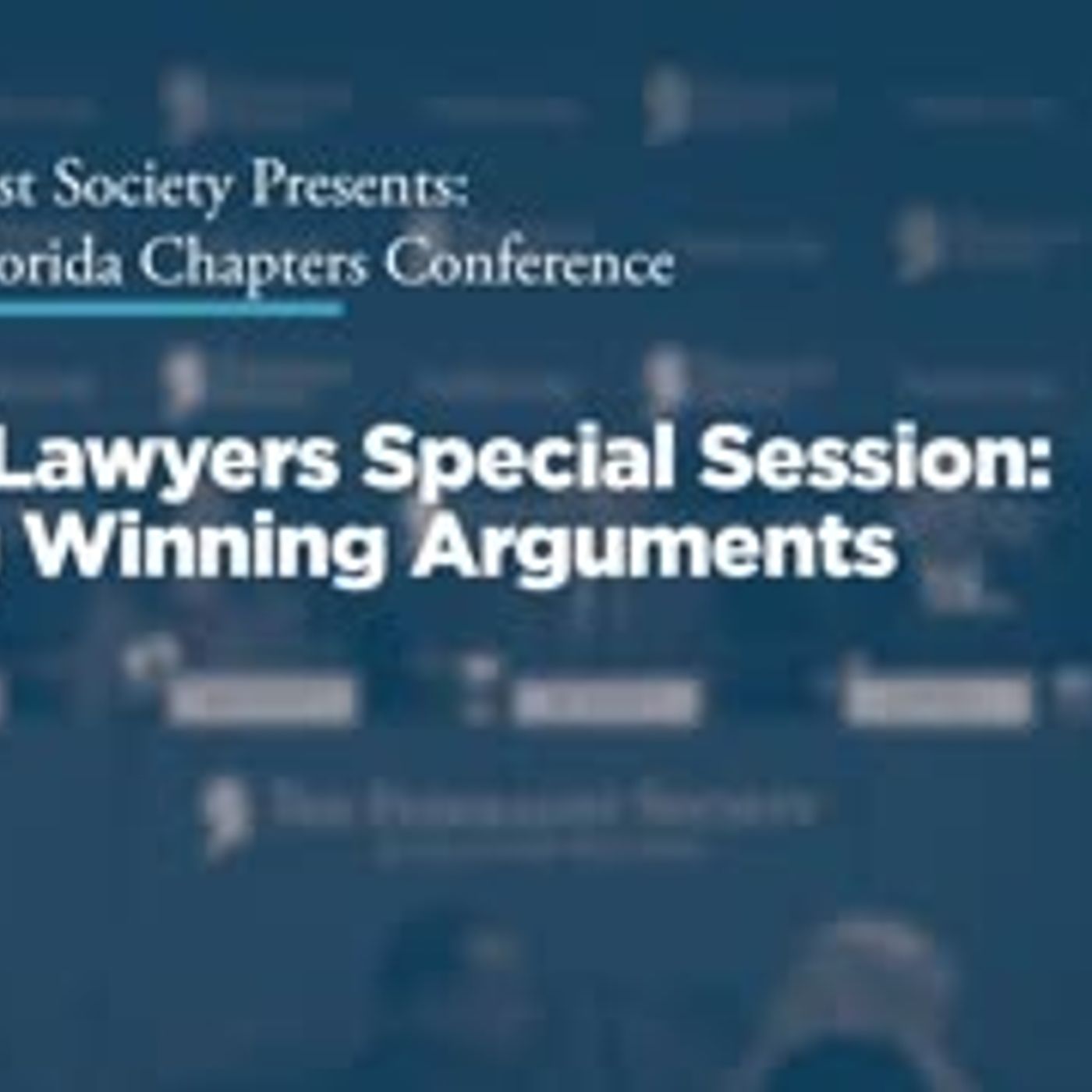

The state and federal bench has transformed in recent years, with more textualist/originalist judges appointed or elected. These changes are influencing how advocates should prepare to make winning arguments. A panel of jurists and leading litigators will offer their best advice to young advocates in making successful oral arguments and incorporating originalism and textualism into their briefs. They will offer their perspectives on how litigation tactics might change, if at all, at the appellate or trial court levels. They will also discuss why litigators play such a key role in encouraging textualist and originalist decisions. Featuring: Whitney Hermandorfer, Director of Strategic Litigation Unit and Assistant Solicitor General, Office of the Tennessee Attorney General Hon. Bobby Long, Judge, 1st District Court of Appeal, Florida Hon. Jay Mitchell, Associate Justice, Alabama Supreme Court Ed Wenger, Partner, Holtzman Vogel Baran Torchinsky & Josefiak PLLC Moderator: Hon. Kathryn Kimball Mizelle, U.S. District Court, Middle District of Florida
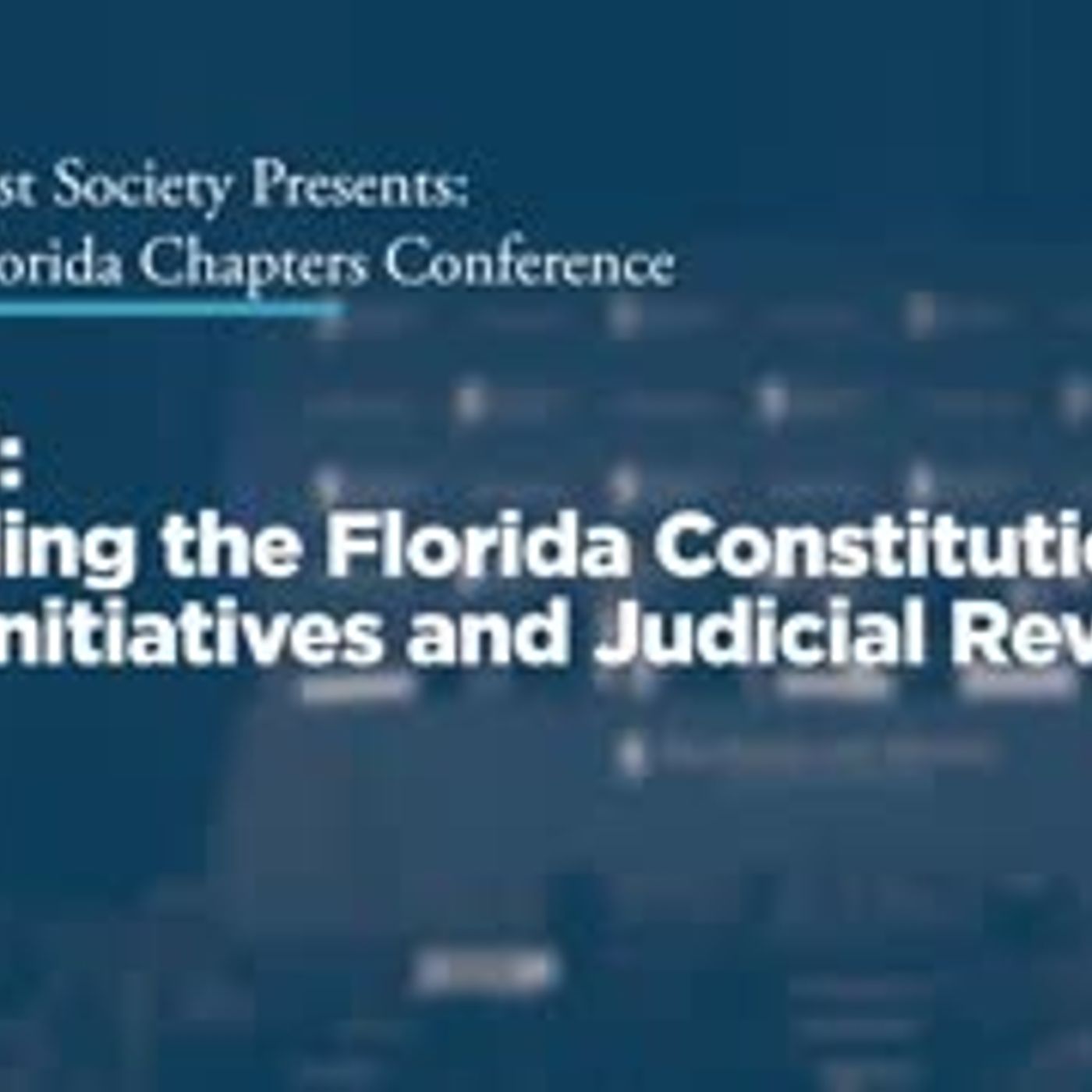

The citizen-initiative process allows the People of Florida to propose amendments to the state constitution, subject to Supreme Court review. But what is the appropriate scope of judicial review of such ballot initiatives? Does the single-subject rule enable outcome-driven judicial decision-making? This panel will discuss these questions and others in the context of the Adult Personal Use of Marijuana and the Amendment to Limit Government Interference with Abortion initiatives. Featuring: Daniel Bell, Chief Deputy Solicitor General, Office of Florida Attorney General Anastasia Boden, Director, Robert A. Levy Center for Constitutional Studies, Cato Institute Hon. Alan Lawson, Shareholder, Lawson Huck Gonzalez PLLC Prof. Jonathan Marshfield, Associate Professor of Law, University of Florida Levin College of Law Moderator: Hon. Anne-Leigh Gaylord Moe, Judge, Thirteenth Judicial Circuit of Florida
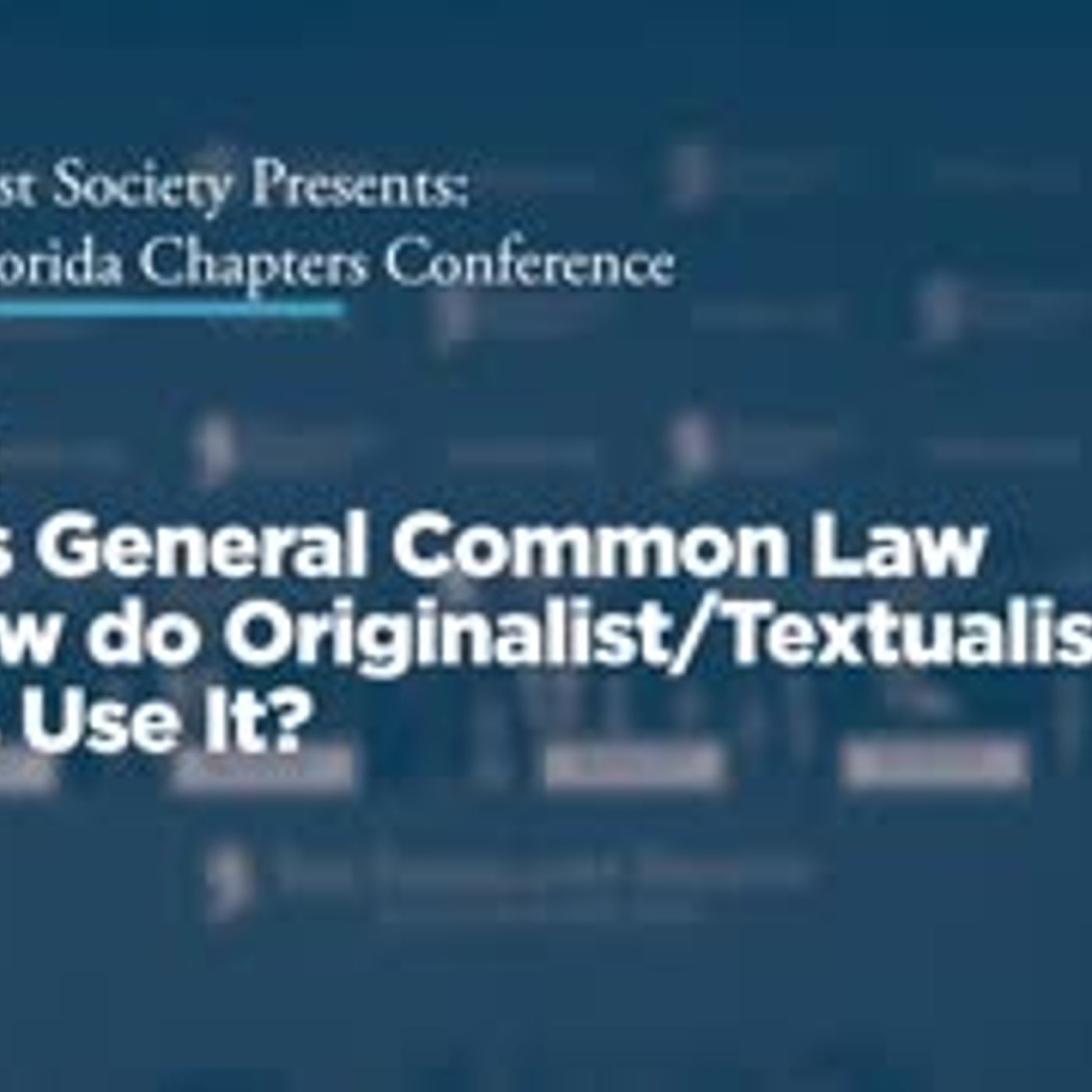

It has been said that American-style split sovereignty provides the people a “double security” for their liberties. And a distinct security too: where the Framers’ primary restraint on the avarice of the United States was the enumeration of its powers, each state is omnipotent and yet typically bound by a thicker conception of the proper ends of government. But these separate sovereigns interact in unique and sometimes puzzling ways that leave the state of the vertical separation of powers in flux. And given that “split[ting] the atom of sovereignty,” as Justice Kennedy characterized it in US Term Limits v. Thornton, is a uniquely American contribution, is it really necessary to secure the people’s liberty? Featuring Prof. Maureen Brady, Louis D. Brandeis Professor of Law and Deputy Dean, Harvard Law School Hon. Sarah K. Campbell, Justice, Tennessee Supreme Court Hon. James E. Tierney, Lecturer on Law, Harvard Law School and former Attorney General, Maine Prof. Ernest A. Young, Alston & Bird Distinguished Professor of Law, Duke University School of Law Moderator: Hon. Stephanos Bibas, Judge, United States Court of Appeals for the Third Circuit
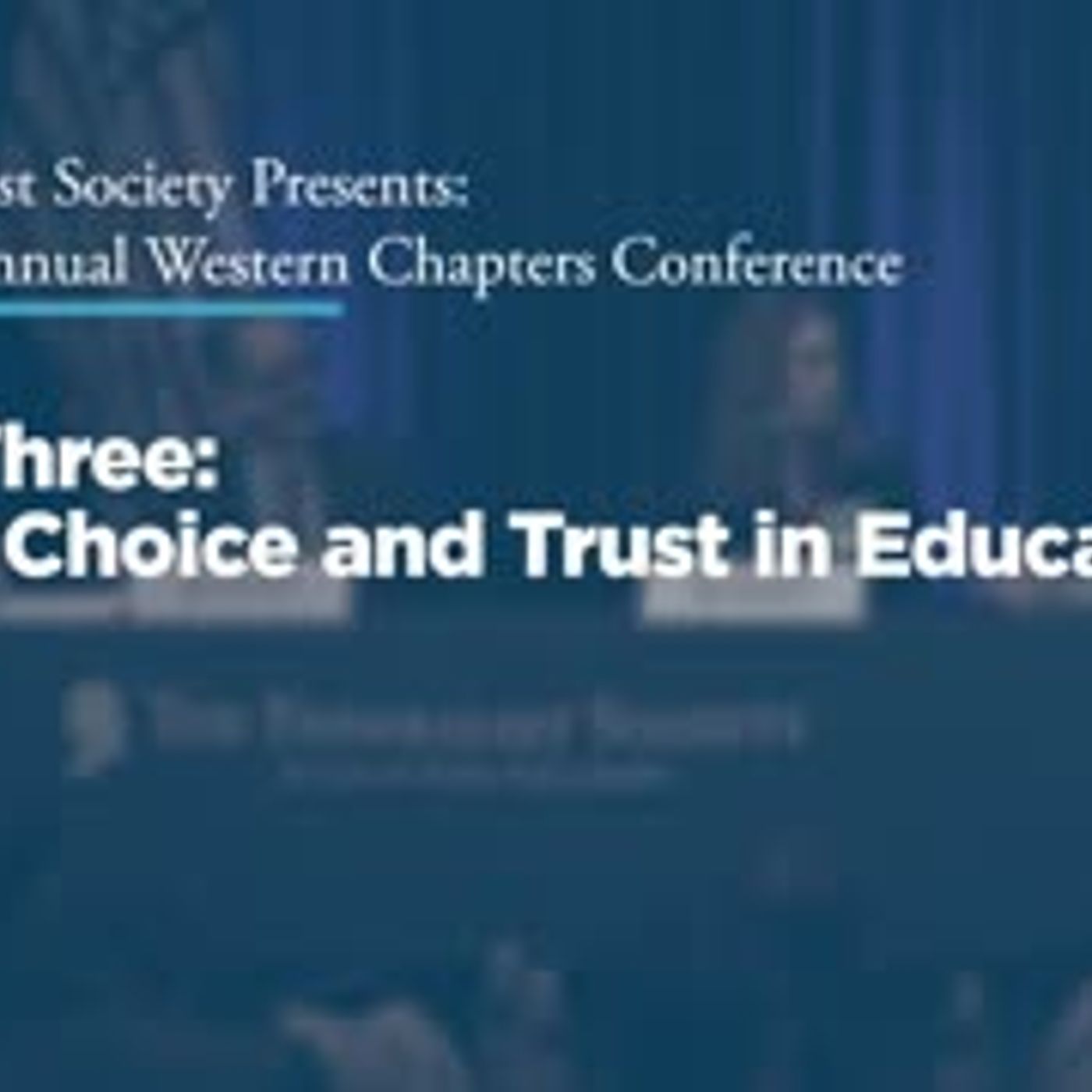

Traditionally, education has been seen as instilling the common shared civic values that Americans have held for since the nation’s founding. As the educational establishment has become increasingly more progressive, many states have begun to offer alternatives to traditional public-school education, particularly in the wake of the Covid pandemic when many schools were shut down. This has included laws that allow for educational savings accounts, charter schools, and home-schooling. However, these proposals have met fierce opposition from the educational establishment, legislatures, and education unions. At the heart of this opposition is access to funding and the degree to which parents have the right to make educational decisions for their children. Will education choice laws restore balance to American education? How does this battle affect the trust in America’s educational system? Are there proposals that all sides agree upon that can restore a sense of shared civic values? How do these battles affect local school board races and what does that mean for representative government? Panelists will answer these questions as well as address some of the key educational questions affecting the Western States. Featuring: Hon. Clint Bolick Moderator, Justice, Arizona Supreme Court Cara Fitzpatrick, Story Editor, Chalkbeat National Tim Keller, Executive Director, The Institute for Justice Arizona Chapter Erin Valdez, Policy Director, Next Generation Texas
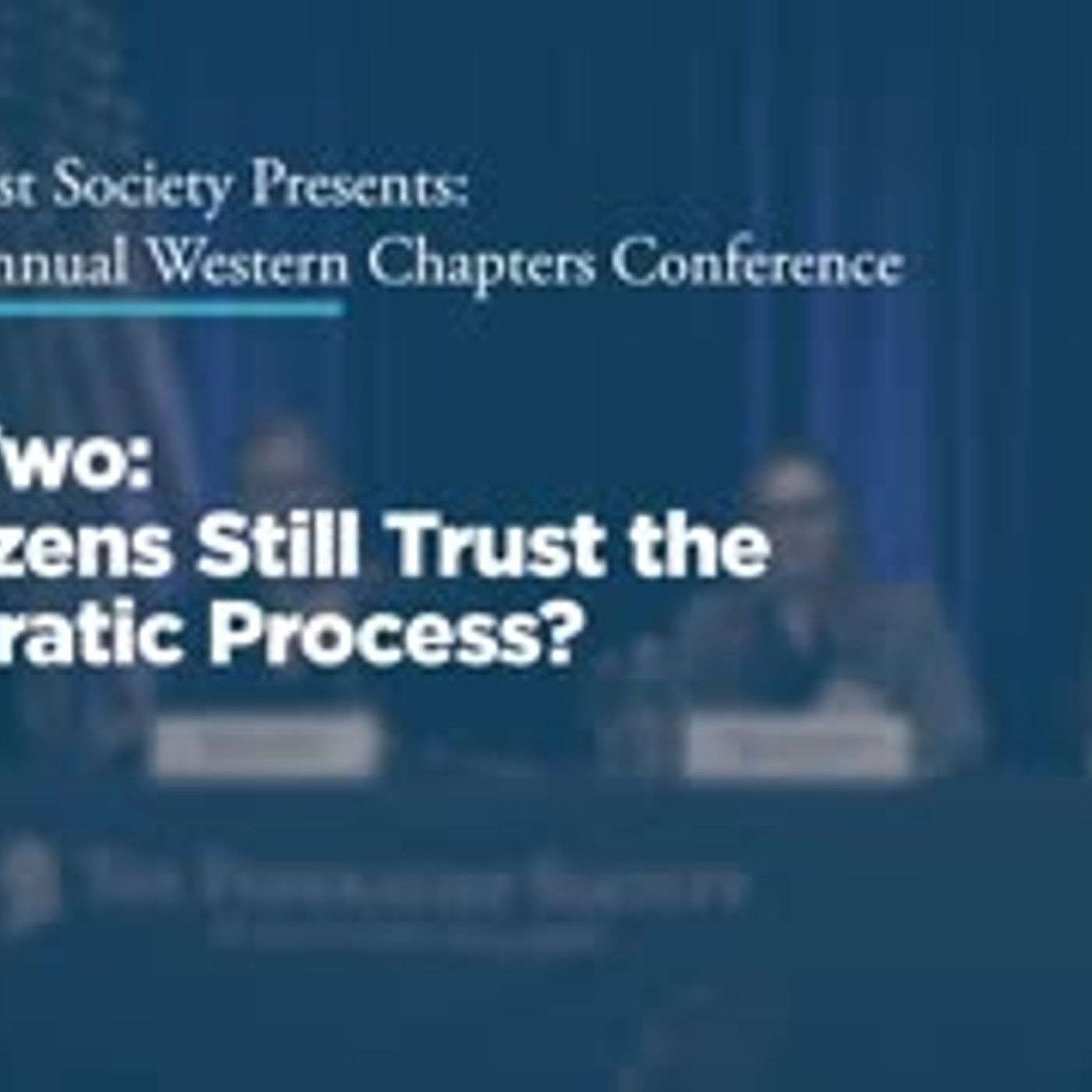

From the 1960s onward, election lawyers on the political left focused on securing and expanding voting access. Lawyers on the political right focused on ensuring the integrity and accuracy of the voting process. Now, most academic literature suggests that there's fairly little disenfranchisement and fairly little voter fraud. Despite this evidence, the voting process has become increasingly controversial in recent years, with increasing attacks on election integrity and voting access. This rhetoric has all led to decreased voter trust in the process. Headed into another presidential election year, panelists will consider whether recent developments in mail-in voting, voter ID, and voter harvesting laws, among other issues, merit the decreased trust voters have in the process and how election lawyers should respond. Featuring: Audrey Perry Martin, Partner, Gober Group Hon. Michael T. Liburdi Moderator, Judge, United States District Court, District of Arizona Stephen I. Richer, County Recorder, Maricopa County Bradley Schrager, Attorney, Bravo Schrager LLP
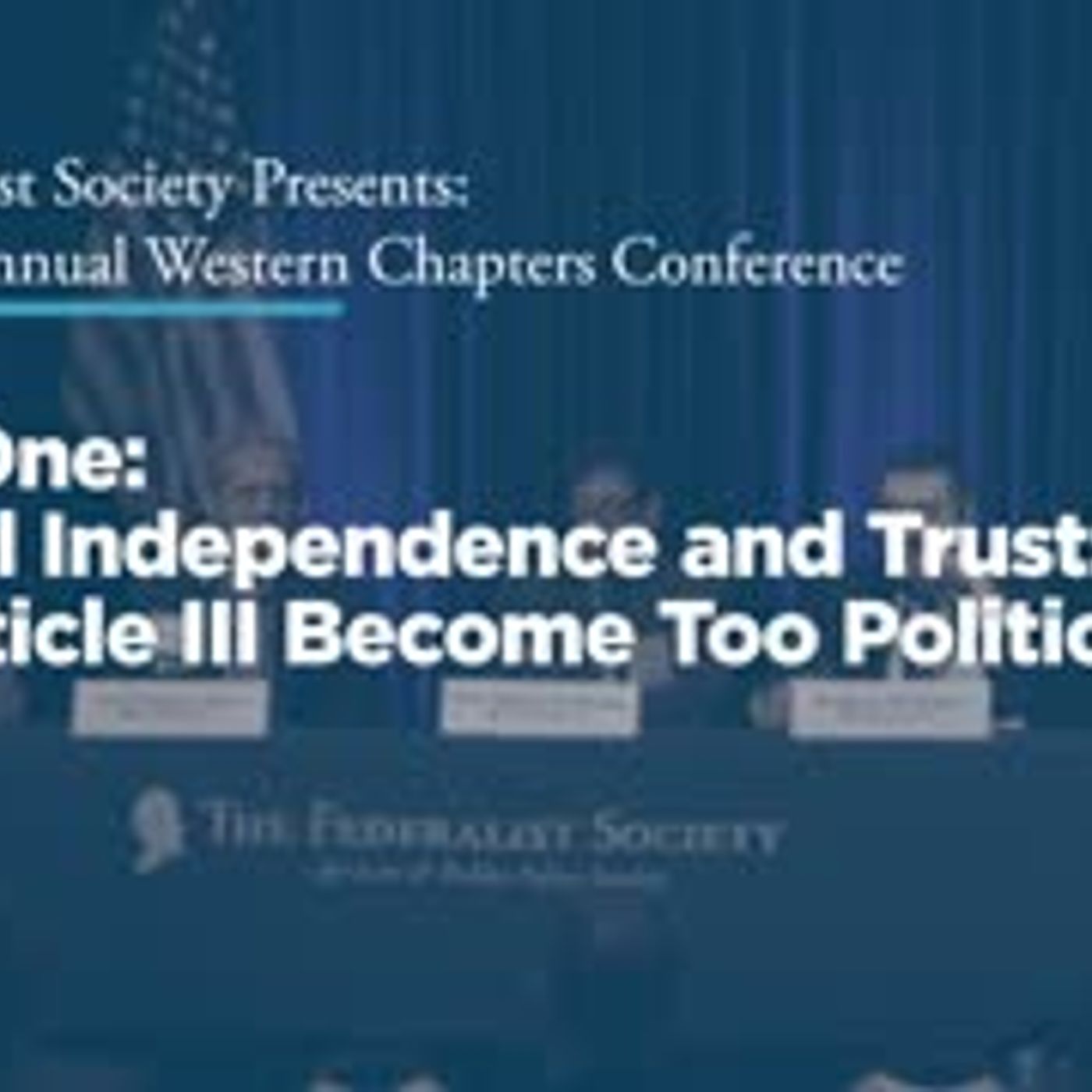

All levels of the judiciary have faced increased attacks on their independence in recent years. Even trial court judges have faced increased scrutiny, particularly those in single-judge districts and those who have granted nationwide injunctions. “Reform” proposals such as adding justices, term limits, ethics codes, abolishing blue slips, and limiting the Court’s jurisdiction have been proposed by critics to limit the power of the courts. However, these proposals are nothing new: in decades past, when the ideological balance of the Court was different, similar proposals were floated by those who sought to limit the role and influence of the courts. What’s changed? What is the role of the organized bar, if any, in defending judicial independence? How, if at all, has the increased politicization of the judicial confirmation process affected judicial independence? What does all of this mean for trust in the judiciary? And are there changes that should be considered that are both constitutional and would receive bipartisan support? Should conservatives be more aggressive in defending attacks against the judiciary? Panelists will discuss these and other questions in considering judicial independence and the people’s trust in the judiciary. Featuring: Hon. Carlos T. Bea Moderator, Judge, United States Court of Appeals, Ninth Circuit Benjamin M. Flowers, Partner, Ashbrook Byrne Kresge LLC; Former Solicitor General, State of Ohio Prof. Michael D. Ramsey, Hugh and Hazel Darling Foundation, Professor of Law; Director, International & Comparative Law Programs, University of San Diego School of Law Prof. Eugene Volokh, Gary T. Schwartz Distinguished Professor of Law, UCLA School of Law Debra Wong Yang, Partner, Gibson, Dunn & Crutcher LLP
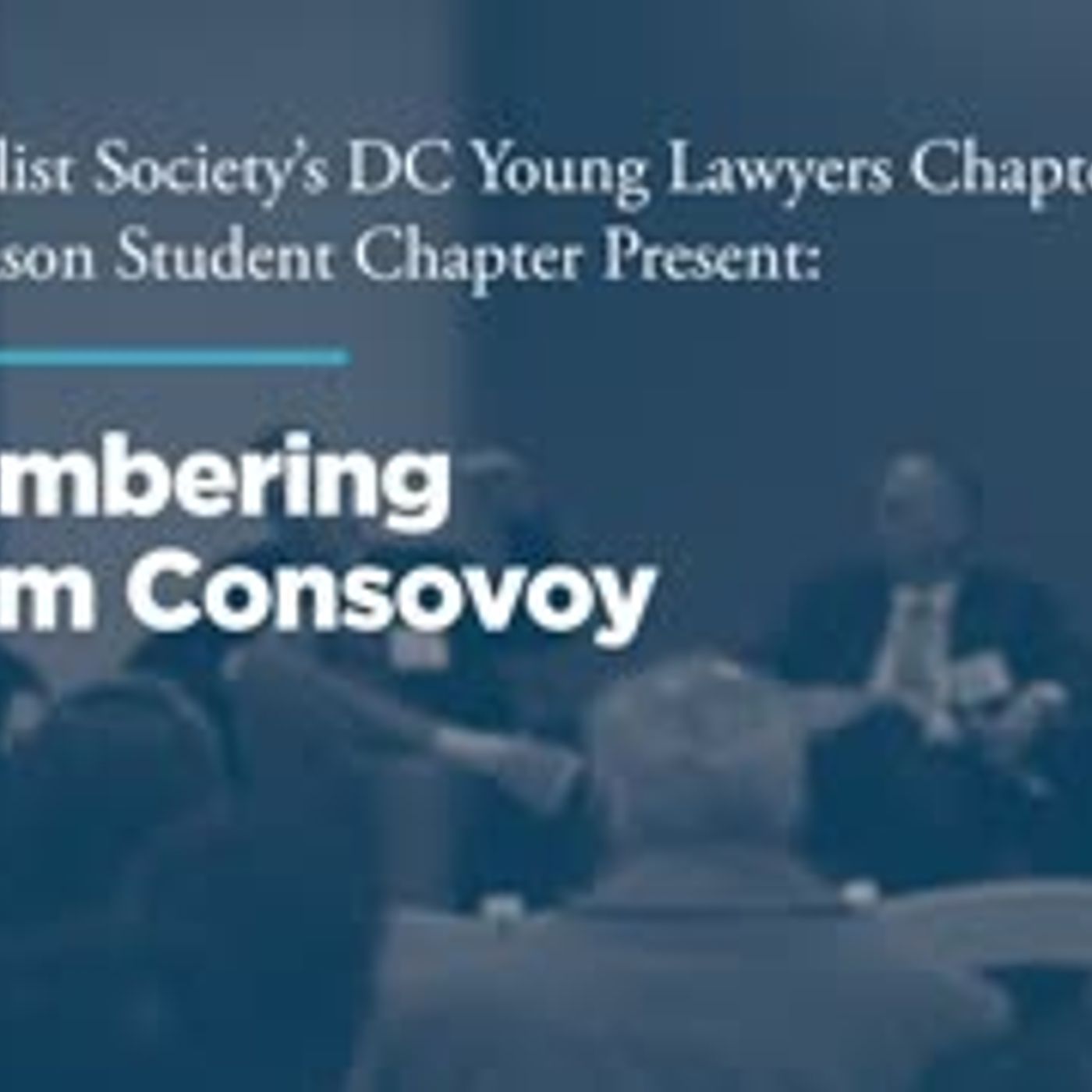

Join the DC Young Lawyers Chapter and the George Mason Student Chapter for an evening conversation and reception. Featuring: Prof. Jennifer Mascott, Assistant Professor of Law and Co-Executive Director, C. Boyden Gray Center for the Study of the Administrative State, Antonin Scalia Law School, George Mason University Thomas McCarthy, Partner, Consovoy McCarthy PLLC; Adjunct Professor, George Mason University Scalia Law Prof. Todd Zywicki, George Mason University Foundation Professor of Law, Antonin Scalia Law School, George Mason University Doors open at 6 with the program to begin promptly at 6:30. A reception will follow. This event is free to attend.
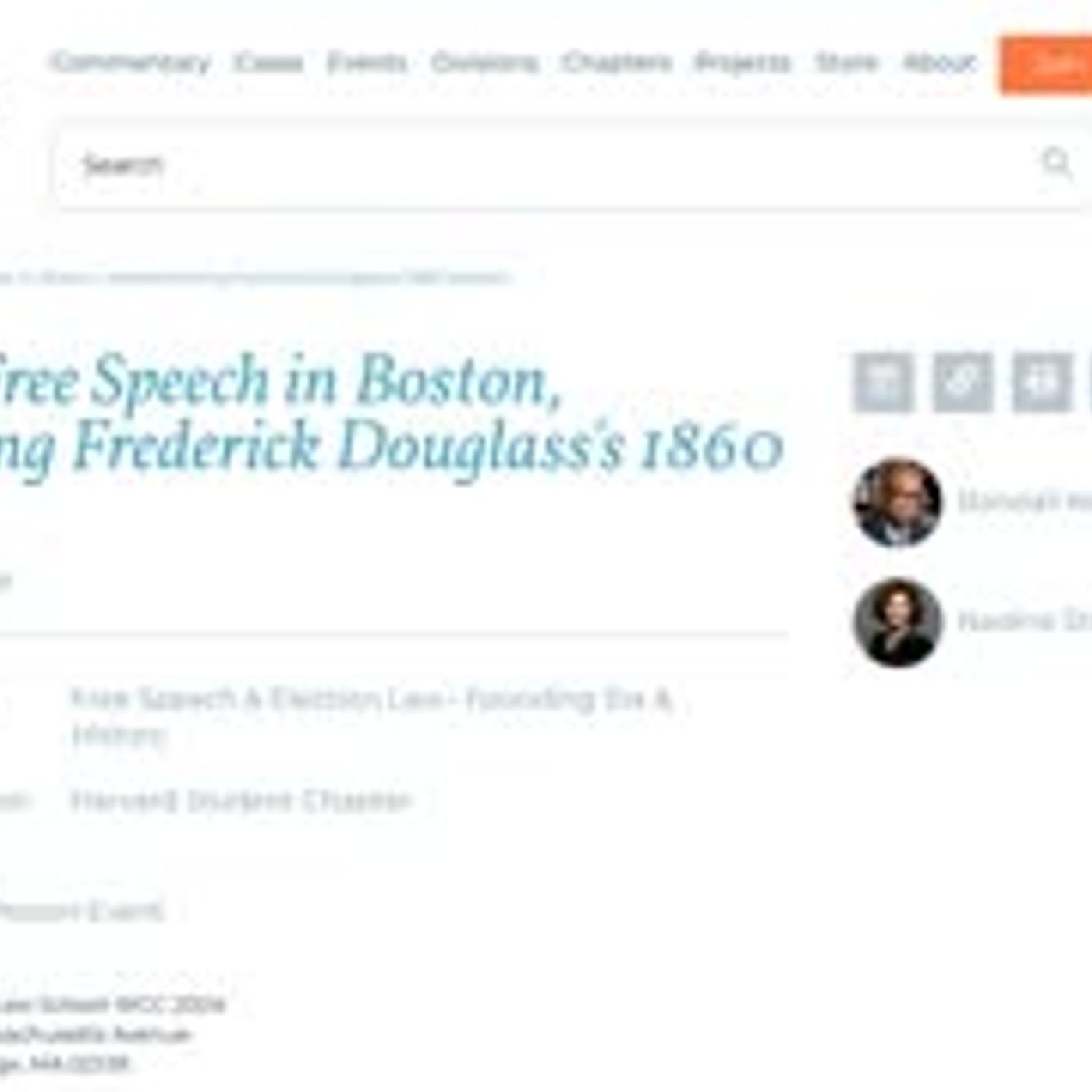

On Wednesday, November 29, the Harvard Student Chapter held a conversation, produced in partnership with the Harvard Alumni for Free Speech, featuring Prof. Randall Kennedy and Prof. Nadine Strossen to commemorate the 164th anniversary of Frederick Douglass's "Plea for Free Speech in Boston." Featuring: Prof. Randall Kennedy, Michael R. Klein Professor of Law, Harvard Law School Prof. Nadine Strossen, John Marshall Harlan II Professor of Law Emerita, New York Law School; Former President, American Civil Liberties Union
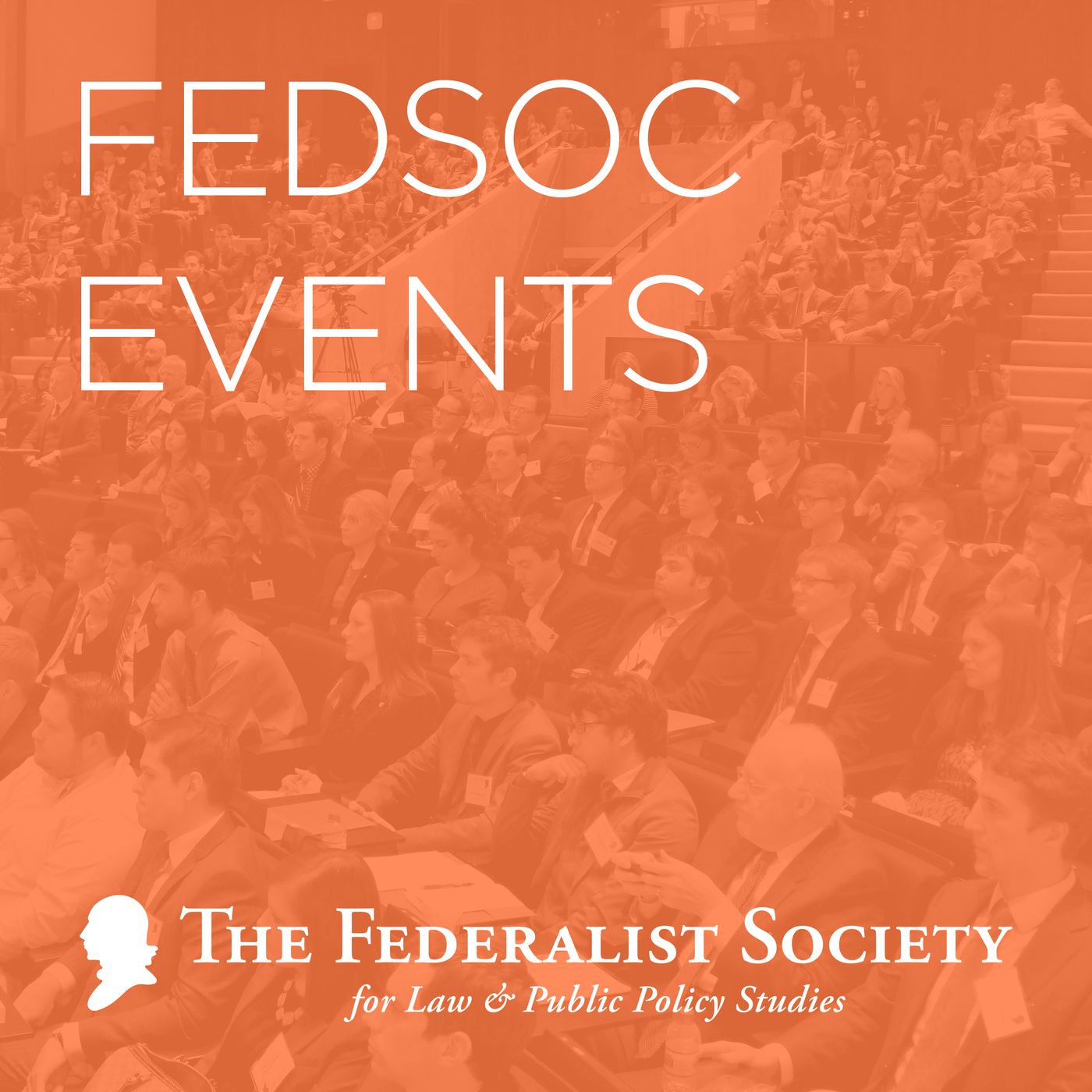

Featuring: Ms. Erin E. Murphy, Partner, Clement & Murphy, PLLC Mr. Patrick Strawbridge, Partner, Consovoy McCarthy Park PLLC Hon. Seth P. Waxman, Partner, WilmerHale; Former United States Solicitor General Moderator: Hon. Timothy M. Tymkovich, United States Court of Appeals, Tenth Circuit
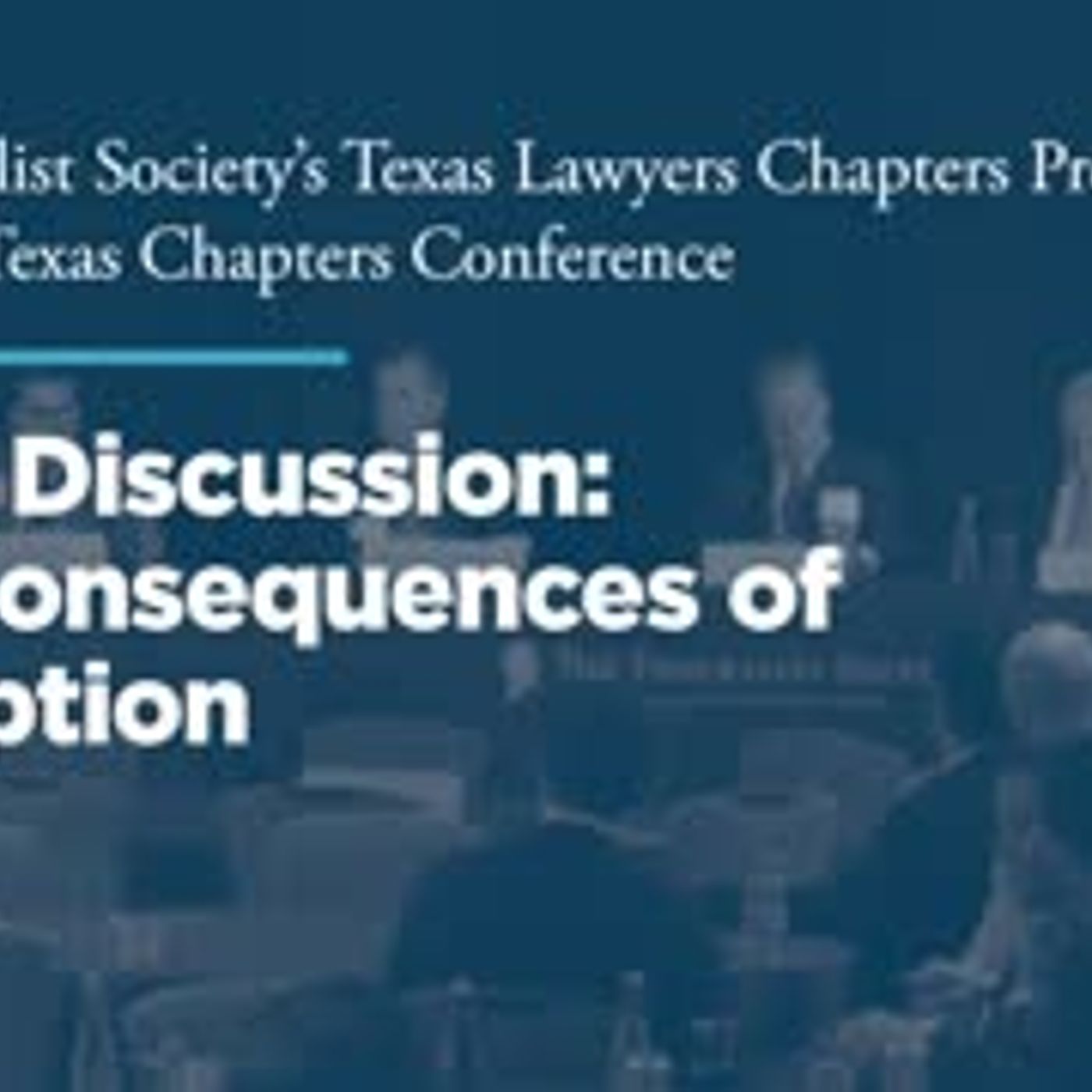

Collegiality and the presumption that opposing counsel work together in good faith are bedrocks of the American legal profession, as well as unpopular ideas and clients being able to obtain competent representation and equal access to justice under the law. In recent years, there has been an increase in disruptive activity in law schools. We have seen law students declare ideas "too harmful" for open debate and try to “cancel” or “shame” anyone who challenges their views. We have also seen instances where law students shout down invited speakers, even federal judges. But today's law students are tomorrow's lawyers. How should the legal profession prepare to deal with these recent trends on campus? What’s the responsibility of faculty and administrators to model and educate on appropriate behavior in an academic community and in the legal profession? Should there be consequences for students that engage in disruptive activity in law school? Should legal employers be concerned how these students will handle representing clients and making arguments that do not align with their own views? Should clients be worried about hiring lawyers that have personally disrupted an event by a judge? Our panel will feature leaders from all the major institutions that will have to answer these important questions: academia, the courts, law firms, and in-house legal departments. Featuring: Robert Ahdeih, Dean and Anthony G. Buzbee Endowed Dean's Chair and Vice President for Professional Schools and Programs, Texas A&M University Hon. Jimmy Blacklock, Justice, Supreme Court of Texas Gregg Costa, Partner, Gibson, Dunn & Crutcher LLP Hiram Sasser, Executive General Counsel, First Liberty Institute J. Ammon Smartt, General Counsel, North America; Global Lead Counsel, Treasury, WTW Moderator: Hon. Reed O’Connor, U.S. District Court, Northern District of Texas
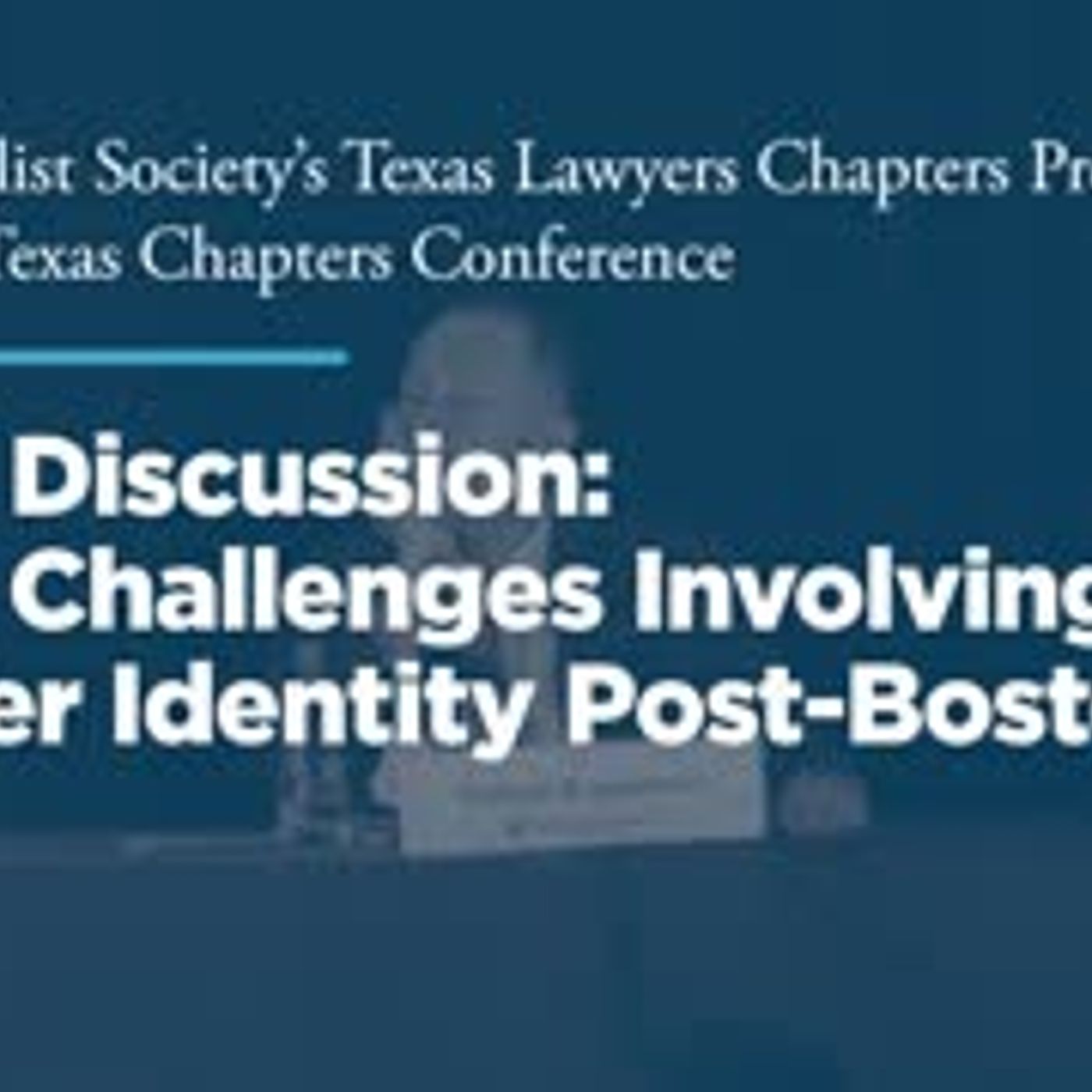

Litigation and legislation involving complex issues regarding gender identity are at the forefront of public interest. States and other authorities face questions about legality, morality, or advisability of treatment for minors. Courts are being asked to adjudicate who can participate in sex-segregated sporting competitions. Advocates on all sides of these complex gender identity issues portray their position as a matter of fairness. When minors are involved all sides claim to seek to protect the best interest of the child and there is not a clear ideological breakdown in terms of whether states should adopt a parents rights approach, which cautions deference to parents to protect their child’s best interests, versus those who advocate for state intervention to protect the child. In both red and blue states, advocacy for the respective ideological approaches can draw opposing conclusions, wherein, for example, some states are banning medical intervention for minors over parents’ objections and other states are permitting medical intervention for minors over parents’ objections. Our panel today will discuss these and other legal issues facing state governments, parents, and children as they work to navigate these new legal challenges. Featuring: Christiana Kiefer, Senior Counsel, Alliance Defending Freedom Prof. Andrew Koppelman, John Paul Stevens Professor of Law, Northwestern Pritzker School of Law Shannon Minter, Legal Director, National Center for Lesbian Rights Christopher Mills, Principal, Spero Law, LLC Moderator: Hon. Elizabeth Kerr, Justice, Second Court of Appeals, State of Texas


Featuring: Prof. J. Joel Alicea, Co-Director, Project on Constitutional Originalism and the Catholic Intellectual Tradition, Assistant Professor of Law, Columbus School of Law, The Catholic University of America Prof. Randy E. Barnett, Patrick Hotung Professor of Constitutional Law, Georgetown University Law Center; Founding Director, Georgetown Center for the Constitution Prof. Richard H. Fallon, Story Professor of Law, Harvard Law School Prof. Stephen E. Sachs, Antonin Scalia Professor of Law, Harvard Law School Moderator: Hon. Neomi Rao, U.S. Court of Appeals, District of Columbia Circuit


The 2023 National Lawyers Convention will take place November 9-11, 2023 at the Mayflower Hotel in Washington, DC. The topic of the conference is "Originalism on the Ground." The final day of the conference will feature the fifteenth annual Rosenkranz Debate. RESOLVED: States Can Constitutionally Regulate the Content Moderation Policies of Facebook and Twitter Featuring: Prof. Richard Epstein, Laurence A. Tisch Professor of Law and Director, Classical Liberal Institute, New York University School of Law Mr. Clark Neily, Senior Vice President for Legal Studies, Cato Institute Moderator: Prof. Nicholas Quinn Rosenkranz, Professor of Law, Georgetown School of Law


In patent and copyright law, injunctions are now a subject of significant policy debate. Innovators say they are unable to stop predatory infringement. Creators state they are unable to stop large-scale piracy websites. If so, this undermines the rewards promised by the intellectual property system and devalues the commercial assets that drive the global innovation economy in new technologies and creative works. Others state that intellectual property owners use injunctions to hold up innovation or chill legitimate commercial activity. This panel will discuss the role of injunctions in facilitating or constraining commercialization of patented technologies and copyrighted works, and what the current state of the law portends for the future, such as in the development of next-generation innovations like AI and its use of creative works. Featuring: Hon. John W. Holcomb, United States District Court, Central District of California Prof. Kristen Jakobsen Osenga, Austin E. Owen Research Scholar & Professor of Law, The University of Richmond School of Law Ms. Laurie Self, Senior Vice President & Counsel, Government Affairs, Qualcomm Ms. Laura Sheridan, Head of Patent Policy, Google Moderator: Hon. Ryan T. Holte, U.S. Court of Federal Claims; Jurist-In-Residence Professor of Law, The University of Akron School of Law Overflow: Chinese Room


Oral argument was held in U.S. v. Rahimi on November 7, 2023. The case asks whether 18 U.S.C. Section 922(g)(8), which prohibits possession of firearms by persons subject to domestic violence restraining orders violates the Second Amendment on its face. What does the Court's jurisprudence foretell about the decision? Is there an obvious originalist answer? Featuring: Prof. William G. Merkel, Associate Professor, Charleston School of Law Prof. Mark W. Smith, Senior Fellow, Ave Maria School of Law Mr. David H. Thompson, Managing Partner, Cooper & Kirk Moderator: Hon. Lawrence VanDyke, United States Court of Appeals, Ninth Circuit Overflow: Cabinet & Senate Rooms


Is the National Labor Relations Board doing more than any other federal agency to impose broad restrictions on non-coercive speech, based exclusively on whether the speaker is an employer? Under other statutes, speech prohibitions require evidence of actual threats, unlawful retaliation or potential injury to health and safety, and the National Labor Relations Act expressly protects the right to express “views,” “argument” and “opinion” unless the message “contains” an illegal threat or promise. The NLRB General Counsel is prosecuting numerous complaints claiming it is “inherently” coercive and “per se” unlawful for employers to address certain subjects in the workplace. This session will involve diverse views about important questions: Where do these cases leave the First Amendment? Does commerce regulation override the First Amendment? Does the NLRB have authority to prohibit workplace discussions by employers regarding certain subjects? And what role exists in this critical area for the courts? Featuring: Hon. Philip A. Miscimarra, Partner, Morgan, Lewis & Bockius LLP Craig Becker, General Counsel, American Federation of Labor–Congress of Industrial Organizations Moderator: Hon. Chad A. Readler, United States Court of Appeals, Sixth Circuit


Featuring: Prof. John C. Harrison, James Madison Distinguished Professor of Law, University of Virginia School of Law Hon. Randolph Moss, United States District Court, District of Columbia Hon. Andrew S. Oldham, Judge, United States Court of Appeals, Fifth Circuit Prof. Jed H. Shugerman, Boston University School of Law Moderator: Hon. Gregory G. Katsas, Judge, United States Court of Appeals, District of Columbia Circuit


(Ticketed event) On September 11, 2001, at the age of 45 and at the height of her professional and personal life, Barbara K. Olson was murdered in the terrorist attacks against the United States as a passenger on the hijacked American Airlines flight that was flown into the Pentagon. The Federalist Society believes that it is most fitting to dedicate an annual lecture on limited government and the spirit of freedom to the memory of Barbara Olson. She had a deep commitment to the rule of law and understood well the relationship between respecting limits on government power and the preservation of freedom. And, significantly, Barbara Olson was an individual who never took freedom for granted in her own life, even in her final terrifying moments-her inspiring and energetic human spirit is a testament to what one can achieve in a world that places a premium on human freedom. Solicitor General Theodore B. Olson delivered the first lecture in November 2001. The lecture series continued in following years with other notable individuals. Featuring: Ms. Bari Weiss, Founder & Editor, The Free Press Introduction: Mr. Theodore W. Ullyot, Co-Chairman, Board of Visitors, The Federalist Society


The U.S. Supreme Court’s originalist jurisprudence has been on display in its most recent terms – consider the constitutional analysis in major cases like Bruen and Dobbs. But is the Court’s originalism sound? In his newly released book, Mere Natural Law, Professor Hadley Arkes argues that the Court’s ascendant mode of interpretation insufficiently relies upon the natural moral law. Critics assert that such reliance would be difficult, if not impossible, to moor to objectively discernible standards. This panel brings together several of the most formidable constitutional scholars of a generation to discuss natural law and constitutional conservatism alongside Professor Arkes. Featuring: Prof. Hadley P. Arkes, Founder and Director, James Wilson Institute on Natural Rights and the American Founding & Edward N. Ney Professor in American Institutions Emeritus, Amherst College Prof. Randy E. Barnett, Patrick Hotung Professor of Constitutional Law, Georgetown University Law Center Hon. Edith H. Jones, United States Court of Appeals, Fifth Circuit Moderator: Prof. Robert P. George, McCormick Professor of Jurisprudence & Director, James Madison Program, Princeton University Overflow: Chinese Room


Recent years have seen unprecedented controversies about election rules, including mail-in ballots and drop boxes, partisan and racial gerrymandering, early voting, ballot harvesting, and methods of vote counting. Because election laws have partisan consequences, the legislators who make election laws, the officials who administer elections, and the judges who decide election cases are often suspected of exercising power so as to increase their own side’s electoral chances. As we look ahead to future elections, this panel will consider what it means to have a fair election process and how much deference judges should pay to the determinations of officials whose actions in formulating and applying election laws may have partisan motivations. Featuring: Hon. Michael G. Adams, Secretary of State, Commonwealth of Kentucky Prof. Richard Briffault, Joseph P. Chamberlain Professor of Legislation, Columbia Law School Prof. Michael R. Dimino, Professor of Law, Widener University Commonwealth Law School Prof. Richard H. Pildes, Sudler Family Professor of Constitutional Law, New York University School of Law Hon. Bradley A. Smith, Josiah H. Blackmore II/Shirley M. Nault Professor of Law, Capital University Law School; Former Commissioner, Federal Election Commission Moderator: Hon. Thomas M. Hardiman, United States Court of Appeals, Third Circuit


Featuring: Hon. Stewart Baker, Of Counsel, Steptoe & Johnson LLP Hon. Beth A. Williams, Board Member, United States Privacy and Civil Liberties Oversight Board Mr. Gene C. Schaerr, Partner, Schaerr Jaffe LLP Prof. John Yoo, Emanuel Heller Professor of Law, University of California Berkeley School of Law Moderator: Hon. Paul Matey, United States Court of Appeals, Third Circuit


Featuring: Prof. William Baude, Professor of Law and Faculty Director, Constitutional Law Institute, University of Chicago Law School Prof. Michael W. McConnell, Richard and Frances Mallery Professor and Director, Constitutional Law Center, Stanford Law School; Senior Fellow, Hoover Institution Moderator: Prof. Julia D. Mahoney, John S. Battle Professor of Law and Joseph C. Carter, Jr. Research Professor of Law, University of Virginia School of Law


In recent months, the U.S. Senate confirmed a third Democratic Commissioner at the Federal Communications Commission, putting the agency in full force for the first time since January 2021. This panel will focus on the FCC’s likely agenda as we look to 2024. It will also explore the bounds of the Communications Act of 1934, as updated by the Telecommunications Act of 1996, when applied to modern technology, areas for possible legislative reform, and how the existing regulatory authority provided by Congress impacts the Commission's initiatives in the year ahead. Featuring: Hon. Jonathan Adelstein, President & CEO, The Wireless Infrastructure Association; Former Commissioner, Federal Communications Commission Hon. Brendan Carr, Commissioner, Federal Communications Commission Hon. Mignon Clyburn, Principal, MLC Strategies, LLC; Former Commissioner, Federal Communications Commission Hon. Nathan Simington, Commissioner, Federal Communications Commission Moderator: Hon. Michael H. Park, United States Court of Appeals, Second Circuit


This year the Supreme Court issued its long-awaited decision in Students for Fair Admissions Inc. v. President and Fellows of Harvard College. The Court held that the admissions programs of Harvard College and the University of North Carolina violated the Equal Protection Clause of the Fourteenth Amendment. The Court’s ruling elevates a colorblind reading of the Fourteenth Amendment. In the college admissions context, the decision makes unconstitutional certain policies that would favor one applicant over another on the basis of that applicant’s race. College admissions offices across the country will have to alter the policies they’ve used for decades. How will they adapt? Will facially race-neutral policies aiming to achieve a desired racial balance for accepted classes be created as a proxy? Will colleges attempt to sidestep the ruling or find legally permissible means of achieving their objectives? If so, how will the courts respond? Some observers argue that the decision in SFFA should be expected to affect diversity, equity, and inclusion efforts outside of college admissions. Will public and private employers have to change their hiring practices? Will competitive K-12 schools adjust their admissions policies? What about scholarships? Government contracting? How far-reaching will the Court’s interpretation of the Fourteenth Amendment ultimately be? This panel will provide a comprehensive review of SFFA and explore its consequences. Featuring: Prof. Akhil Reed Amar, Sterling Professor of Law and Political Science, Yale Law School Hon. Gail L. Heriot, Professor of Law, University of San Diego School of Law Prof. Randall L. Kennedy, Michael R. Klein Professor of Law, Harvard Law School Mr. Devon Westhill, President & General Counsel, Center for Equal Opportunity Moderator: Hon. Stephen A. Vaden, United States Court of International Trade Overflow: Cabinet & Senate Rooms


The administrative state - the agencies comprising the Executive Branch of the U.S. federal government - has exploded in size and reach since 1946 when President Truman signed the Administrative Procedure Act into law. The APA has been amended a bit since then, but has it kept up with current challenges? While the Executive Branch has been growing, the other two branches of government have been changing as well. Congress has increasingly tended to delegate authority to agencies. And courts are changing their views not only of how much leeway agencies have in interpreting and applying statutes, but also of what methodology courts themselves should employ when interpreting statutes, including the APA. This panel will discuss how these changes impact the government and the governed. Featuring: Hon. Steven Bradbury, Distinguished Fellow, Executive Vice President’s Office, The Heritage Prof. Emily Bremer, Associate Professor of Law, University of Notre Dame Law School Prof. Ronald M. Levin, William R. Orthwein Distinguished Professor of Law, Washington University in St. Louis School of Law Mr. Andrew Tutt, Senior Associate, Arnold & Porter Moderator: Hon. Steven J. Menashi, United States Court of Appeals, Second Circuit Overflow: Chinese Room


Featuring: Hon. Lina M. Khan, Chair, Federal Trade Commission Prof. Todd J. Zywicki, George Mason University Foundation Professor of Law, Antonin Scalia, Law School, George Mason University